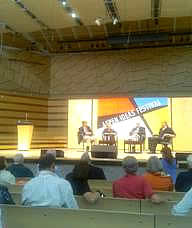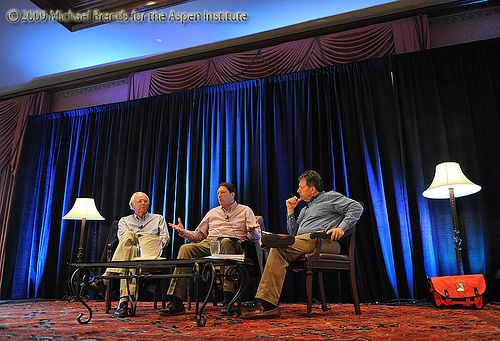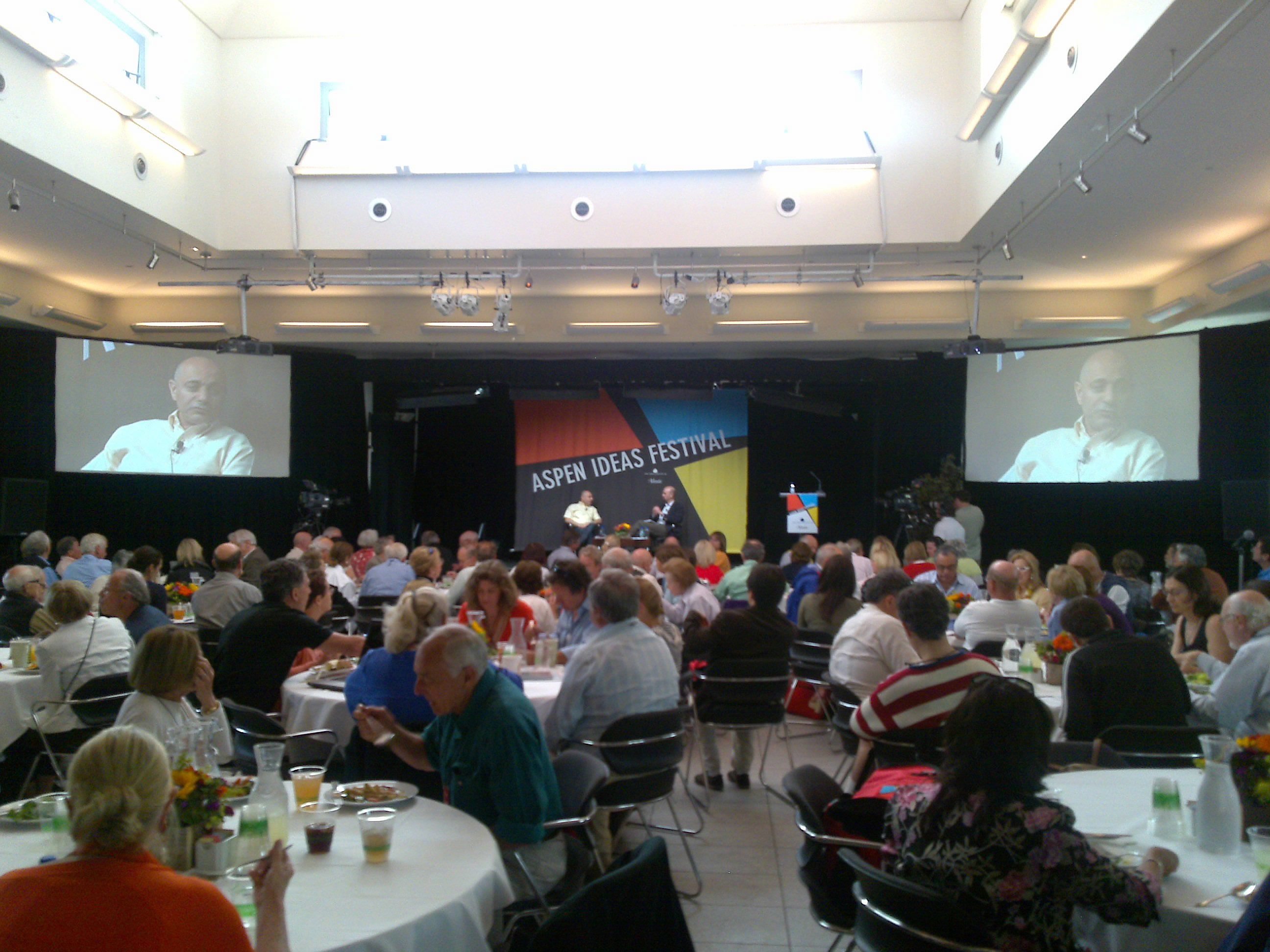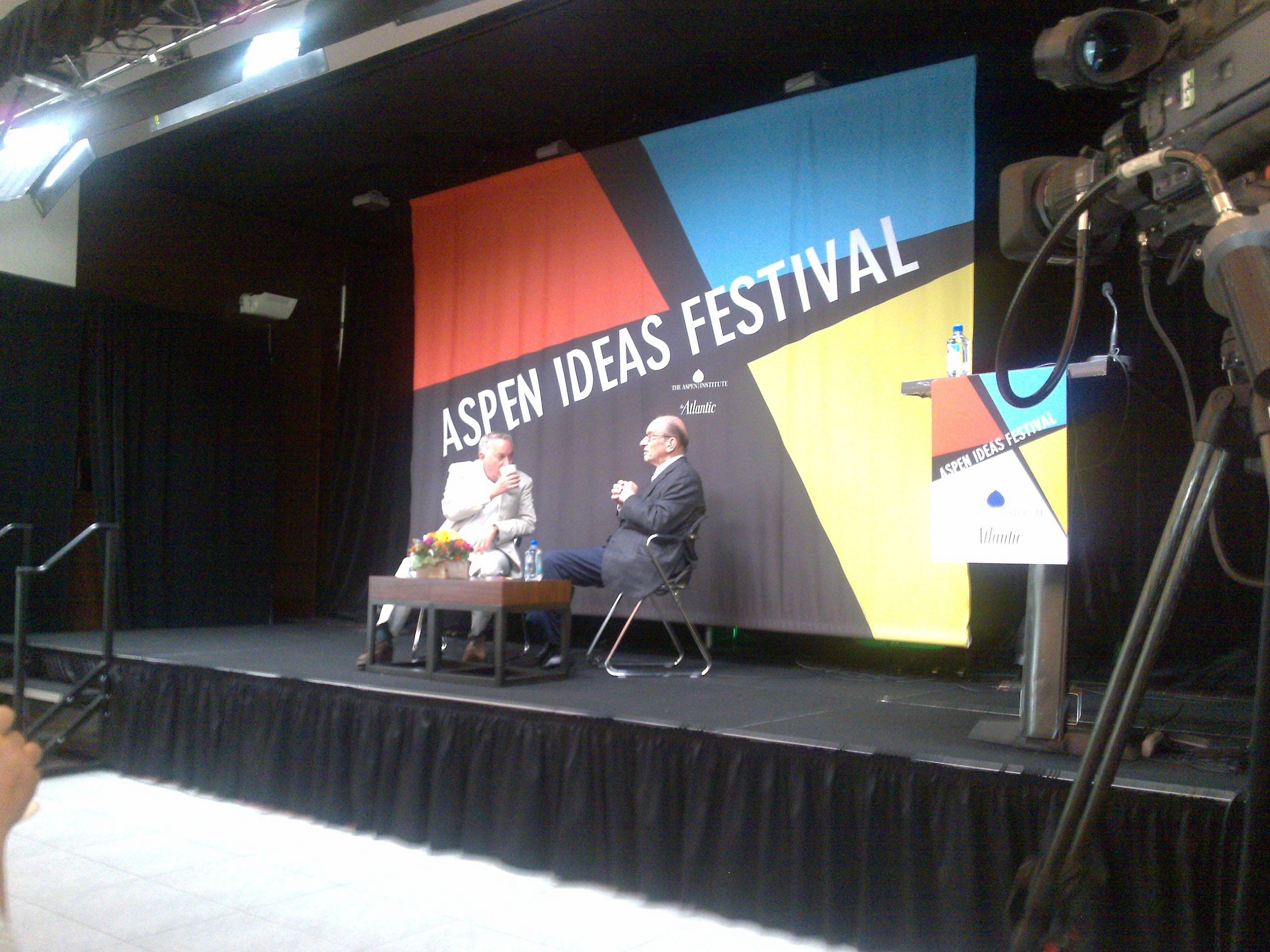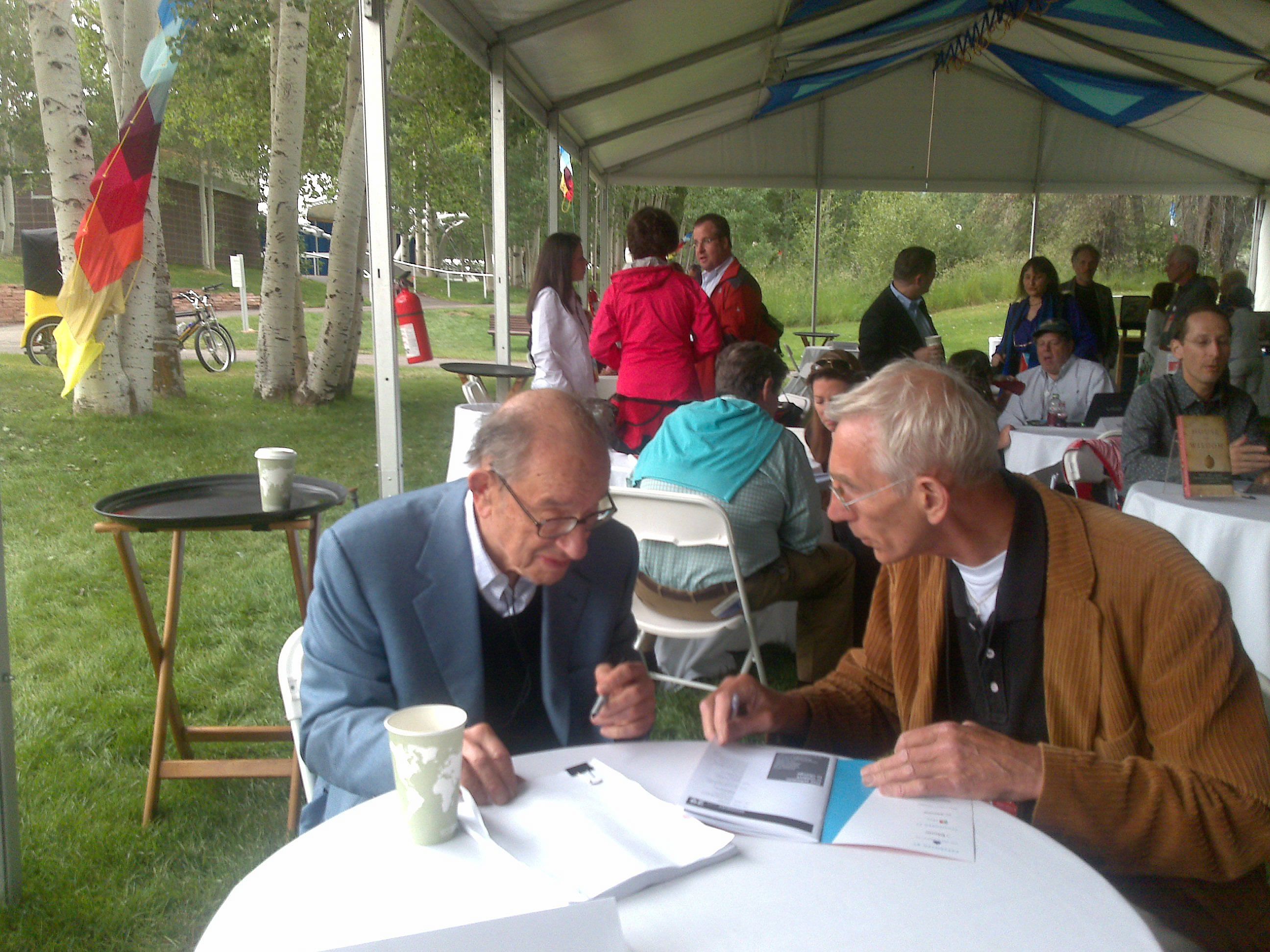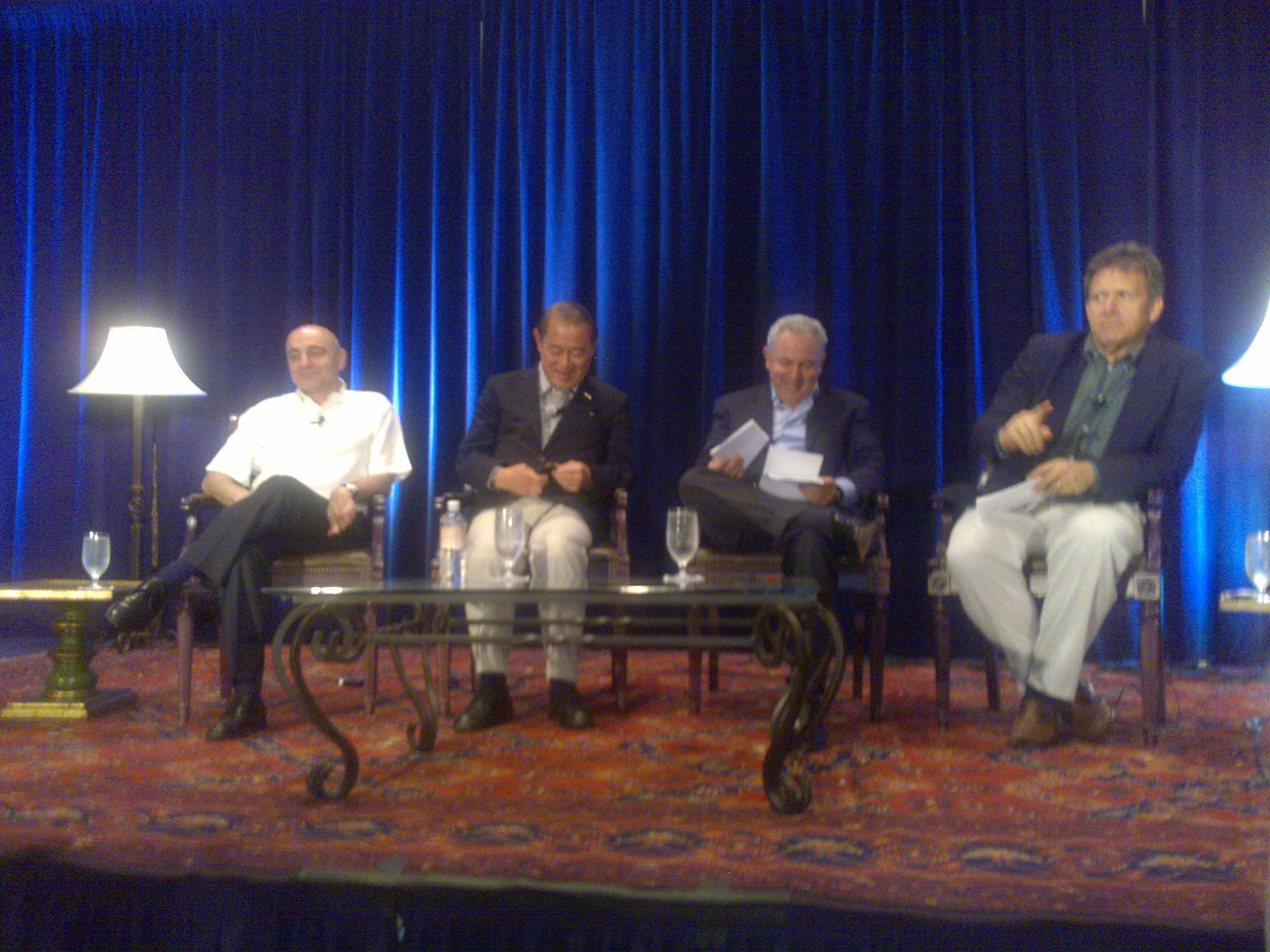| Living Digitally
It is no news that the 'digital age' has arrived. The question now is: Where is it taking us? The trends, people and ideas that are shaping this digital world were viewed and the impact that digital media, digital technology, social networks and games are having on our society were discussed. A "must" not only for those of us who are already living digitally, but for anyone who wants to understand the nature of our digital present - and future.
On the online stage a panel discussed during the session 'Surviving Online' the nature of online comments. One of the problems with the medium is the viciousness online and the lack of empathy. It is not always positive and that cases it actually becomes more a vehicle.
Online advertising is cheesy. Under the heading of 'The Media Crack up', which discussed the future of print journalism versus online journalism, some declared the day of print newspapers and magazines was over. Others argued there was still plenty left in the print business model. And while people are increasingly going to the Web to read newspapers, advertising revenue is not following.
There are challenges with online advertising. Internet advertising sucks. The problem of clicking on an Internet ad is that the experience is terrible. The creative behind the advertising is bad. The spatial relationship to the story is poor. It just looks cheesy.
|
| |
Managing planet Earth
As peoples across the globe seek to improve the well-being of society - politically, socially and economically - we find ourselves increasingly challenged to evaluate and mitigate the consequent impacts on the Earth's environment. The pressure is real: Competition by growing populations and developing economies for land, water, energy, food, natural resources and clean air intensifies more we succeed in improving the lot of human kind. It was explored some of the immediate issues facing planet Earth. What can we do, individually and collectively to mitigate our impacts and get to sustainability?
Channeling China: climate change and the Chinese was lectured. The country's energy policy has changed. The Chinese leaders have drastically changed their position in the last two or three years. Two or three years ago they were saying, 'Look, climate change, if it is a problem, is one that the industrialized countries mainly caused, and the industrialized countries are going to have to fix it, and our participation will depend on how much you will pay us to do it.'
The new position is that, climate change is a problem that the industrialized countries caused, up until now, but we the Chinese, they say, are now the biggest emitters in the world. We understand it can't be solved without us, and we also understand that it is already harming us. We therefore have an incentive to participate in the solution. We still expect you to lead because you were big emitters first and your per capita emissions are much bigger than ours, but when you lead, we will follow.
That is the new Chinese rhetoric and it is to believe they are going to follow it.
|
|
|
What can you do?
Seven speakers gave practical tips on how the attendees could go out and save the world. Most, however, related how they were inspired by the week of discussion and ideas exchange and encouraged those listening to take what they learned too and use it - somehow.
The closest offering was a pragmatic approach to the world's ills. Outlined were two ideas that urge a responsibiliy to act:
think in terms of metaphysical guilt. It means 'the guilt' we should all feel when people's rights have been violated. Also the concept of ubuntu was mentioned, a term originating from the Bantu tribes of South Africa that Nelson Mandela, amoung other leaders, embraced.
Ubuntu refers to the interconnectedness of each human being with others, the relationships people have with each other whether or not they're related or even part of the same society.
It focuses responsebility on individuals and moves them to act. The spirit of ubuntu is broken when communal bonds are broken.
We would change because we would see that we would do great harm.
And in the aftermath of violence or crisis, repairing the strands of a broken social web is as important as rebuilding roads and schools.
We can all learn from humanity's struggles to create solutions. What can you do with your electricity? Study the nature of creativity and rearrange how you think of it. Give other the opportunity to learn the things we've learned and provide opportunities for people.
"Let art make a part of education.
It is about knowing and taking the knowledge to act in a positive way.
Put yourself in someone else's shoes to relate. The secular cause of evil in this world is not doing so. Exercise moral imagination and don't let it atrophy.
It is about the brilliance and creativity of the human mind." |
|

